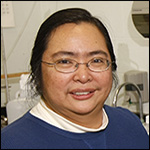Dean Philippe Fauchet announced May 7 the promotions of two engineering faculty members at the final faculty meeting of the 2017-2018 academic year and presented four awards at a reception following the meeting.

Craig Duvall and Jamey D. Young have been promoted to the rank of professor. Duvall’s promotion to full professor of biomedical engineering was effective Jan. 1, 2019. Young’s promotion to full professor of chemical and biomolecular engineering is effective Aug. 16, 2019.
The Vanderbilt Board of Trust has named Kenneth F. Galloway a Distinguished Professor of Engineering and Computer Science, Emeritus, and Dean of the School of Engineering, Emeritus; and James E. Wittig as an Associate Professor of Materials Science and Engineering, Emeritus.

Fauchet also presented two faculty awards, one staff award and one research award based on an outstanding paper written by a graduate student.
The Vanderbilt School of Engineering Award for Excellence in Teaching was presented to Eric Barth, professor of mechanical engineering. Barth was recognized for the breadth and depth of his teaching contributions and achievements over many years. He has developed four new courses and teaches all three mechanical engineering controls courses.
Among his innovative experiments, Barth ran a competition to see how quickly students could make the motor dial in the combination. “Winning times have been less than a quarter of second. This exciting innovation has served as a powerful introduction to controls,” said one nominator.
He has hosted 21 REU (Research Experiences for Undergraduates) students in his Laboratory for the Design and Control of Energetic Systems. He is highly effective at both undergraduate and graduate teaching as evidenced by excellent teaching ratings.

Several of Barth’s students shared enthusiastic remarks: “He does such a great job of explaining and proving things to us every step of the way.” “One of the best teachers I’ve had; one of my favorite classes.” And, “He is exceptional at explaining complex topics and he genuinely cares about his student’s learning and their lives.”
Barth has had significant influence on educators outside Vanderbilt through his participation in the National Science Foundation’s Research Experiences for Teachers Program. For five years, he was the Educational Outreach Director of the Center for Compact and Efficient Fluid Power, an NSF Engineering Research Center.
The Edward J. White Engineering Faculty Award for Excellence in Service was presented to Paul Laibinis, professor of chemical and biomolecular engineering. “Professor Laibinis embodies what the White Award strives to honor,” said Adam McKeever-Burgett, director of Academic Services and Data Analytics. Laibinis serves students as faculty adviser and as his department’s Director of Undergraduate Studies, he serves the school as Curriculum Committee chair and key editor of the undergraduate catalog, and he serves the university as a member of the Faculty Senate and Cornelius Vanderbilt scholarship committee.

Several student nominators said Laibinis was instrumental in shaping their academic careers and readily available for advice and guidance about future job choices. “During job recruiting season, as I struggled to make decisions I would email him at all hours of day and night and would receive thoughtful responses in no time. After my internship concluded this summer, I reached out to him to discuss my experience and travelled to Nashville on my way home to hear his opinion. He is a thoughtful advisor and has contributed immensely to my development as an engineering professional,” said junior Alison Daney.
The Judith A. Pachtman Engineering Staff Award was presented to Rossane Delapp, civil engineering senior research engineer. Delapp, also a lab manager, was recognized as an outstanding staff member who “far exceeds expectations” and as a gifted teacher and coach.
“As a lab manager and engineer, Rossane tirelessly mentors countless undergraduates, graduate students, postdocs, and summer interns, including high school students and teachers, as well as visiting researchers from seven countries. Rossane is truly a Vanderbilt ambassador to the world,” noted seven of her faculty colleagues.

Numerous students supported her nomination. “Rossane has been an integral part of my research experience. She spent hours helping learn my way around the lab,” said junior McKalee Steen. “As a graduate research assistant, I often spent long hours in the lab, even nights and weekends. Most often, Rossane would be in the lab working on projects or preparing samples or equipment for students,” said Catherine Stephens, now a research civil engineer at the U.S. Army Research and Development Center in Vicksburg, Mississippi. Stephens said she strives to have “the dedication that Rossane showed by example and to emulate the mentorship she showed me.”
Researchers at Israel’s Atomic Energy Commission and the country’s Ministry of Energy note her close collaboration on specific lab methods and data analysis. “She is meticulous about analytics and will never let data out of her hands until sure it is of the best possible quality,” said Ofra Klein-BenDavid, at the AEC’s Nuclear Research Center in Negev. “Rossane helped me set up leaching tests for soil samples I brought with me,” said Nadya Teutsch, with the Ministry of Energy’s Geological Survey. “An amazing part of Rossane’s skills is her ability to manage enormous datasets and to keep all in perfect order such that any data point could be found easily in the future.”
The award for outstanding graduate student research paper was presented to Nathaniel C. Bloodworth for “Bone Marrow-Derived Proangiogenic Cells Mediate Pulmonary Arteriole Stiffening via Serotonin 2B Receptor Dependent Mechanism,” published in Circulation Research in December 2018.

Bloodworth, a Ph.D. graduate, who will receive his doctorate of medicine degree Friday and worked in the lab of biomedical engineering professor David Merryman, produced novel and potentially transformative work on serotonin 2B antagonists, which Merryman’s lab is developing in order to pursue clinical studies.
Pulmonary hypertension is a deadly disease with no existing disease modifying therapies. Small-vessel stiffening and remodeling are features of PH and bone marrow-derived proangiogenic cells (PACs) are thought to play an important role in the development of PH.
“By selectively destroying PACs from the bone marrow of mice, we prevent and reverse existing experimental PH induced by a combination of endovascular injury and hypoxia,” Bloodworth said. “This study is the first to provide a causal link between PACs and PH and delineates a role for 5-HT-2B in the development of PH. In doing so, we provide the impetus to pursue 5-HT-2B as a target for PH treatment.”
“Dr. Bloodworth excels at idea synthesis, hypothesis generation, and exquisite data presentation. Additionally, he is a joy to have around and collaborates brilliantly with colleagues. Perhaps most importantly, he has an incessant drive to figure out complicated biomedical questions,” Merryman said.
Contact Brenda Ellis, 615 343-6314
brenda.ellis@vanderbilt.edu